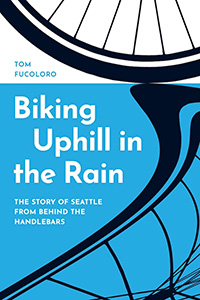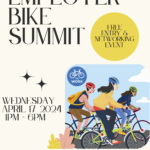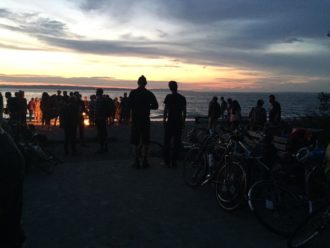
News broke last week that the city is on the verge of settling a lawsuit that could result in a big investment in more curb ramps around Seattle.
Three people with disabilities — Conrad Reynoldson, Stuart Pixley and David Whedbey — sued the city in 2015 and have since grown the case into a class action suit. The pending settlement reportedly includes city investment in curb ramps in lieu of damages to the plaintiffs. More details from the Seattle Times:
Three men with disabilities sued Seattle in 2015, alleging the city was violating the Americans with Disabilities Act because many sidewalks lack curb ramps — which make crossing the street possible in a wheelchair or scooter — and many of the existing curb ramps are not up to snuff.
— Advertisement —
Nearly three decades after the ADA became law, and despite what cities often say are the best of intentions, the courtroom has become a crucial way of forcing them into compliance. The Seattle case is among a flurry of ADA lawsuits across the country in recent years, many of which have forced cities to increase their spending on sidewalks and curb ramps by tens of millions of dollars or more.
One detail about the media coverage that bothered me, however, is that most headlines described the potential settlement as “costing” Seattle. But investing in curb ramps is not a cost at all, it’s an investment in the mobility, safety and dignity of our city’s residents present and future.
Most obviously, our city has moral duty to provide safe access to everyone, whether they can navigate a curb or not. And don’t think that just because you can step over a curb today this doesn’t pertain to you. Nobody is able-bodied forever.
But, of course, ramps don’t only help people who rely on mobility devices to get around. They also help people who are unsteady on their feet, people pushing strollers, people making deliveries and people riding bikes. A modern city quite simply includes curb ramps.
If this lawsuit succeeds in getting big new investments in curb ramps, then the plaintiffs and Disability Rights Washington have done us all a big favor.
Seattle being such a young city currently going through so much redevelopment and building so much new transit also presents us with a very interesting opportunity to make enormous strides to improve accessibility. We have a very long way to go, but not nearly as long a way as, say, New York City.
One impediment to installing more curb ramps is, of course, funding. The average price tag per curb ramp is $13,000. But since typically curb ramps are installed in pairs (you need one on each end of the crosswalk, of course), funding needed to fix a set of corners runs double that figure. And since Seattle has some streets with intense grades, installing ramps that meet ADA grade specifications can be very difficult and, thus, pricey.
$13,000 is definitely worth it to install a ramp. But if Seattle can find ways to reduce the cost of each ramp without diminishing safety and usability, the city could take a much bigger bite out of the backlog of missing or dangerous ramps. City engineers have been experimenting with some promising low-cost ramp ideas, including a handful of asphalt ramps in Pioneer Square extending from the existing curbs into crosswalks:
Low cost curb ramp in pioneer square. call these reverse ramps, as sidewalk/walker space is maintained pic.twitter.com/oAv6OwsUTy
— Dongho Chang (@dongho_chang) January 29, 2016
Not only do these ramps provide mobility improvements for many people, but by slowing turning cars they may improve safety for everyone. Especially when combined with the city’s recent experiments with low-cost, art-covered curb bulbs, these kinds of ramps hold a lot of promise for accelerating implementation of accessibility improvements across the city. And not only could low-budget fixes like these make city investments go further, they can also be installed faster. So, for example, they could be used as interim solutions while corners wait in the long backlog for full-budget remakes.
What we can’t do is continue ignoring the problems highlighted in this complaint (and many more not listed), forcing people who can’t navigate curbs to put themselves in harm’s way just to get around our city.
Here’s a quick 2015 video from DRW’s Rooted in Rights project showing how Seattle’s poorly-designed, unmaintained or missing curb cuts cause big problems for many of our city’s residents and visitors:










Comments
5 responses to “Making streets more accessible is not a ‘cost,’ it’s a vital investment”
My only problem with this fix is that Seattle has many more streets without any sidewalks at all, which also represent a huge accessibility problem that vitally needs to be addressed. Unfortunately, this lawsuit only looks at one part of the problem – existing sidewalks that lack ramps – and seeks to force the city to address that first rather than looking at which is actually needed more. Yes, we need curb ramps on existing sidewalks so that people in wheelchairs, people on bikes, people with strollers, etc. can use them – but we also need more sidewalks, period, so that those same people as well as others can get to other parts of the city without needing to walk in traffic.
Yes, it’s a horrible shame that we’re forced to triage which horrible bleeding sore to fix first, while the State tries to fix us with the bill for a Deeply Boring Tunnel we didn’t ask for. But, sadly, that’s the world we’re in.
I would love to see the breakdown on why curb ramps cost so much. Concrete would cost a few hundred dollars ($140/yd). Demolition, forming and finishing cost $12,500?
This is an old complaint about SDOT. Their standard prices are much higher than the exact same treatment in Portland or Seattle.
It’s not just curb ramps – bike lane painting, PBLs, sidewalk repairs, potholes. The city is extremely crappy at getting bang-for-buck out of SDOT. I’ve never heard it explained why it costs more here. Maybe somebody out there knows?
I hate making SDOT the villan of everything. But they kinda suck.
SDOT is now advertising a ballpark figure of $25,000 per ramp in their most recent Planning Level Project Estimates document, as of January of this year. That’s up from $15,000 a year earlier. I know these are estimates, but it sounds like the $13,000 figure referenced above may no longer be accurate.
Where does that $13k figure come from?
We have a “guerrilla” asphalt curb ramp in our neighborhood that was built by a resident who was frustrated that the city would not install a proper one. Its on a very minor intersection but it would not be safe for bikes coming around the corner in any area with traffic. I cannot believe that Tom is actually suggesting that ramps like that shown in Dongho Changs twitter post are a good idea. Wait until one throws an unsuspecting cyclist into the middle of the street
The city ought to be able to install curb ramps for less than $13,000. That is equivalent to a month of time of a very well paid employee and $3000 for materials. You can dig up and then reinstall a substantial concrete drive for less than $13,000